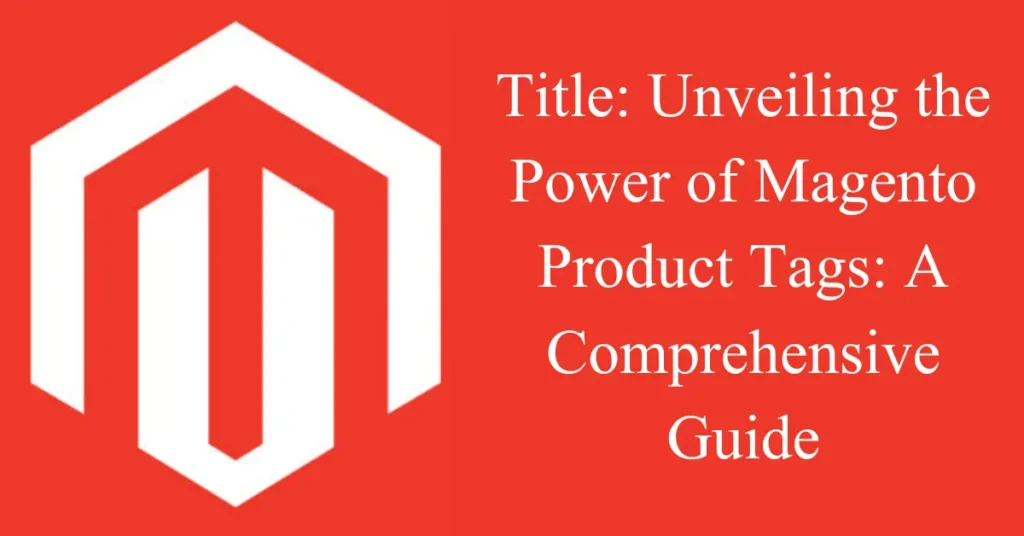Introduction:
Welcome to our comprehensive guide on Magento product tags! In the bustling world of e-commerce, managing product data effectively is crucial for success. Product tags are a powerful tool within the Magento platform that can enhance your store’s organization, improve customer experience, and ultimately boost sales. In this guide, we’ll delve into what product tags are, why they’re important, and provide you with a step-by-step guide to effectively implement and utilize them in your Magento store.
What Are Magento Product Tags?
Magento product tags are descriptive keywords or phrases assigned to products within your online store. These tags serve as labels that help categorize and organize products based on various attributes, such as product type, features, or intended use. For example, if you’re selling clothing, you might use tags like “men’s fashion,” “summer collection,” or “casual wear” to classify your products.
Why Are Magento Product Tags Important?
Product tags play a crucial role in enhancing the discoverability and navigation of products within your Magento store. They provide customers with an efficient way to search for specific items, especially when your store carries a wide range of products. Additionally, product tags can improve SEO by optimizing your site for relevant keywords, driving organic traffic and improving your store’s visibility in search engine results.
Step-by-Step Guide to Using Magento Product Tags:
- Accessing the Product Tag Manager: Navigate to the Magento Admin Panel and locate the Product Tags Manager under the Catalog menu.
- Creating New Product Tags: Click on the “Add New Tag” button and enter the relevant information, including the tag name, status, and applicable products.
- Assigning Tags to Products: Edit individual product listings and assign appropriate tags from the available options.
- Managing Existing Tags: Edit or delete existing product tags as needed to maintain organization and relevance.
- Utilizing Tag Filters: Enable tag filters on your storefront to allow customers to easily browse products based on their interests or preferences.
Advantages of Using Magento Product Tags:
- Enhanced Product Discoverability: Tags facilitate easier navigation and searching, leading to improved user experience.
- Improved SEO: Optimizing product tags with relevant keywords can boost your store’s visibility in search engine results.
- Better Organization: Tags help categorize products effectively, making it simpler for customers to find what they’re looking for.
- Personalized Recommendations: Utilize tags to create personalized product recommendations based on customer preferences and browsing history.
Disadvantages of Using Magento Product Tags:
- Tag Management Overhead: Maintaining a large number of product tags can be time-consuming and may require regular updates to ensure relevance.
- Potential for Tag Spam: Without proper moderation, users may misuse product tags, leading to irrelevant or misleading results.
- Limited Context: Product tags provide a broad categorization but may not capture all aspects of a product’s features or attributes.
FAQs:
Can I add multiple tags to a single product?
Are there any limitations on the length or format of product tags?
Can I use product tags to create custom product groups or collections?
Conclusion:
Magento product tags offer a valuable opportunity to optimize your store’s organization, improve customer experience, and drive sales. By leveraging the power of product tags effectively, you can enhance the discoverability of your products, boost SEO, and provide customers with a seamless browsing and shopping experience. Start implementing product tags in your Magento store today and unlock the full potential of your e-commerce business!
